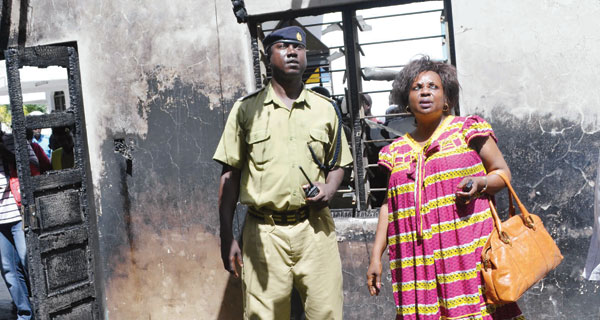×
The Standard e-Paper
Home To Bold Columnists
 |
| Mombasa deputy Governor Hazel Katana (right) at the salvation Army Church, Mombasa Central, which was razed following riots by Muslim youths protesting the shooting of Sheikh Ibrahim Ismail on October 5. |
By LILLIAN ALUANGA-DELVAUX [email protected]
While attacks on churches have raised fears of insecurity, it has also heightened fears over the emergence of yet another challenge: Could the random attacks on congregations fuel the rise, subtle or otherwise, of Christian extremism?